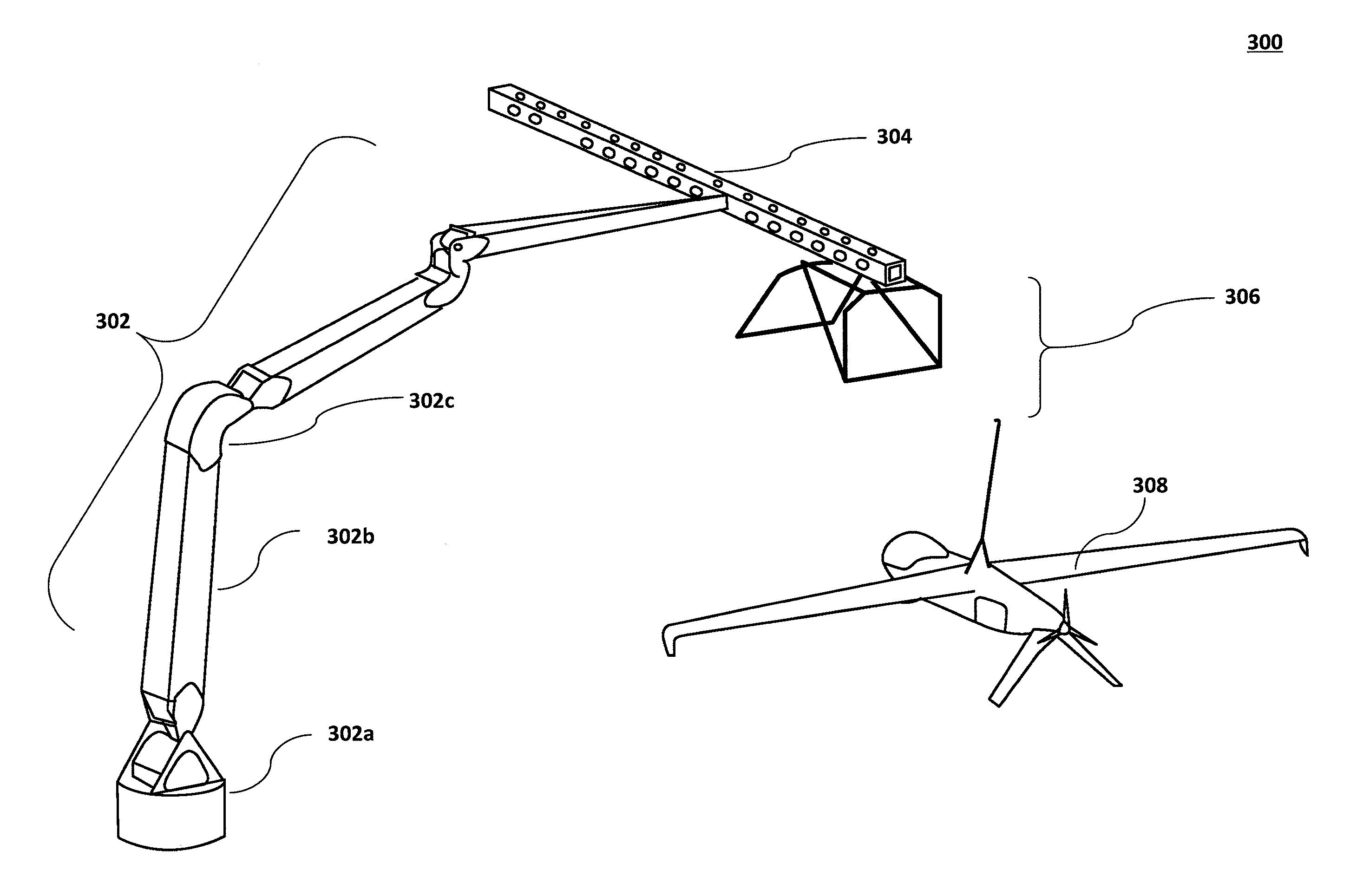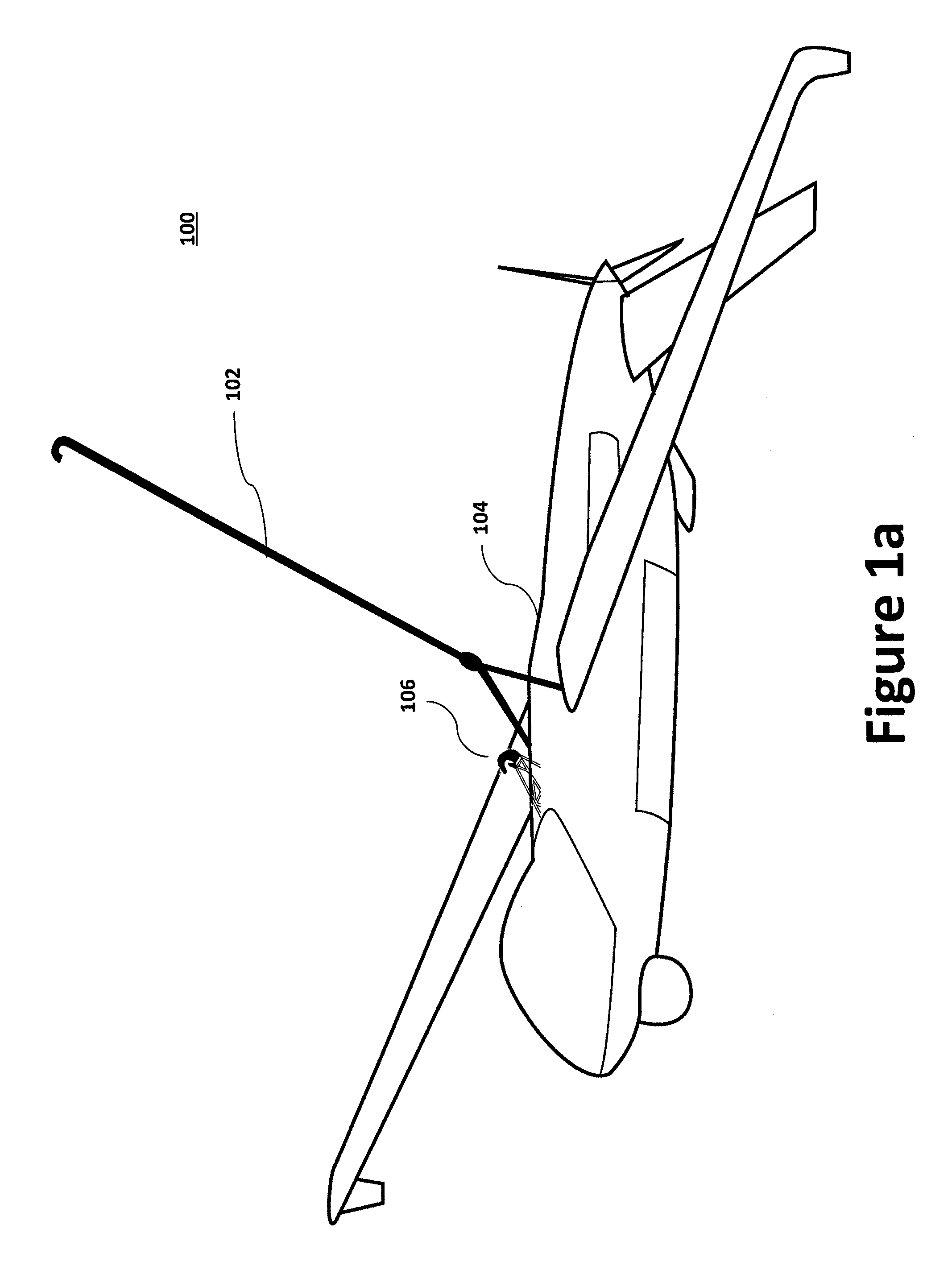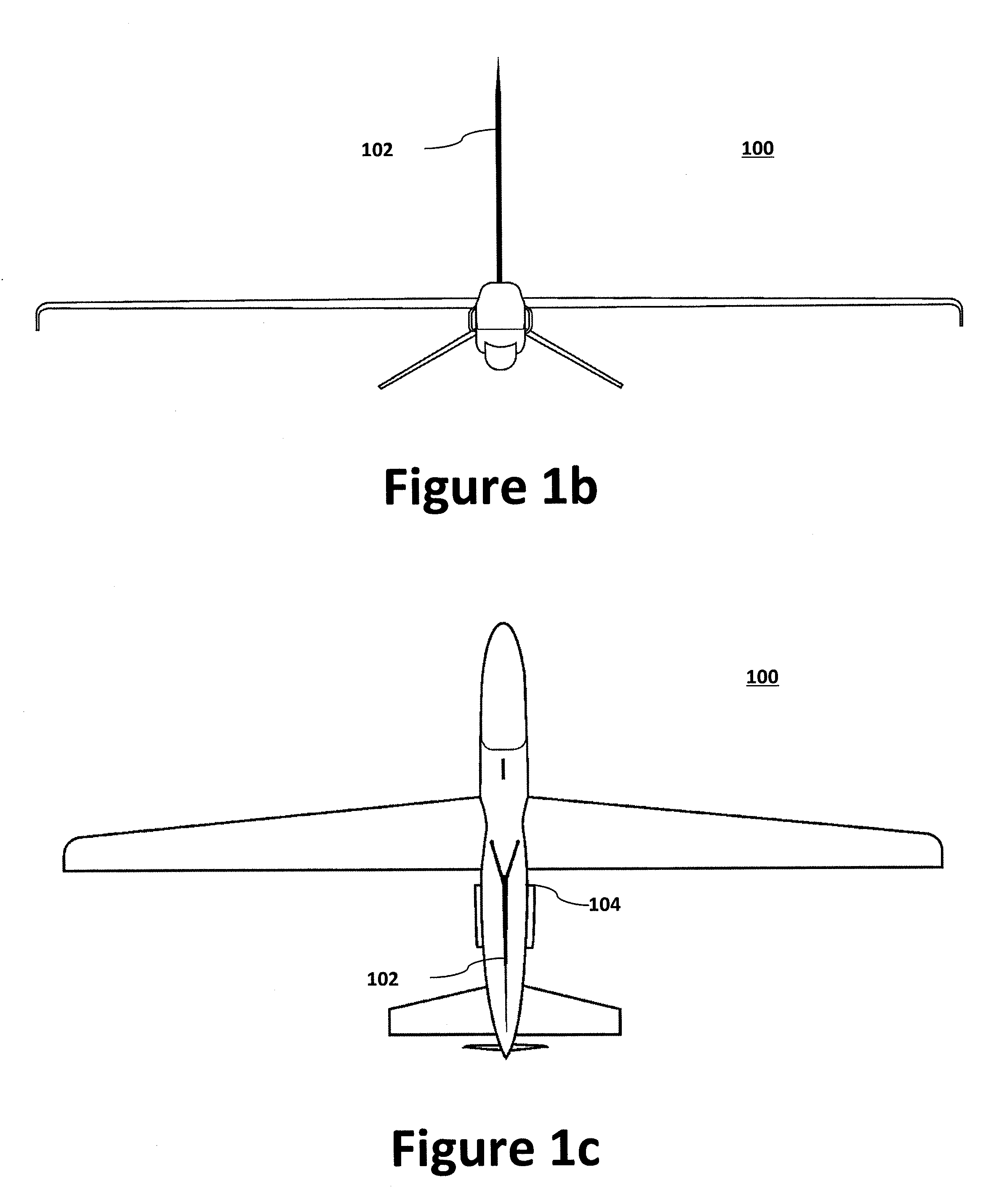Rail recovery system for aircraft
- Summary
- Abstract
- Description
- Claims
- Application Information
AI Technical Summary
Benefits of technology
Problems solved by technology
Method used
Image
Examples
Embodiment Construction
[0046]Embodiments of the present invention are described hereinbelow with reference to the accompanying drawings. In the following description, well-known functions or constructions are not described in detail because they would obscure the invention in unnecessary detail.
[0047]Because of continuing advancements in UAS and UAV technology, the use of UAVs has continued to grow. For example, the Aurora Perseus-N design offers excellent mission performance and, when in the stowed position, occupies only 64×470 inches of hangar space—roughly half the footprint of an MH-60 helicopter. Although UAVs such as the Perseus-N offer excellent mission performance in the air, when runways are unavailable, suitable mechanisms should be provided to facilitate launch and recovery. Therefore, as discussed below, UASs such as the Perseus-N may be configured to utilize a top-hook assembly with a side-arm recovery system to facilitate effective launch and recovery.
[0048]As discussed in greater detail be...
PUM
 Login to View More
Login to View More Abstract
Description
Claims
Application Information
 Login to View More
Login to View More - R&D
- Intellectual Property
- Life Sciences
- Materials
- Tech Scout
- Unparalleled Data Quality
- Higher Quality Content
- 60% Fewer Hallucinations
Browse by: Latest US Patents, China's latest patents, Technical Efficacy Thesaurus, Application Domain, Technology Topic, Popular Technical Reports.
© 2025 PatSnap. All rights reserved.Legal|Privacy policy|Modern Slavery Act Transparency Statement|Sitemap|About US| Contact US: help@patsnap.com



